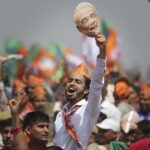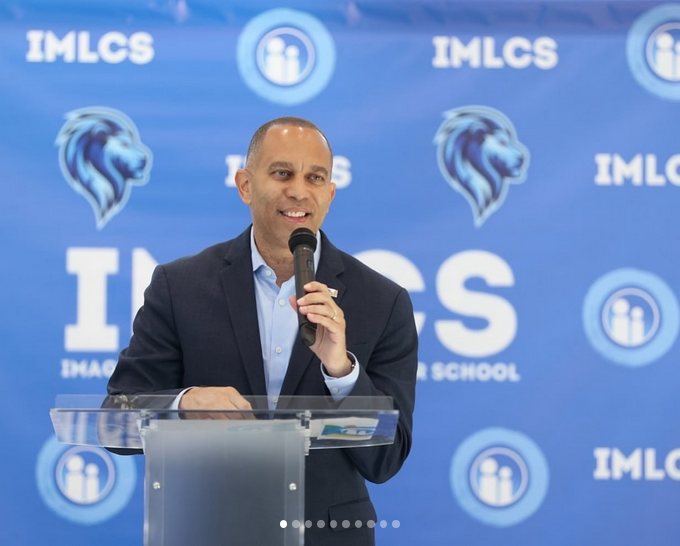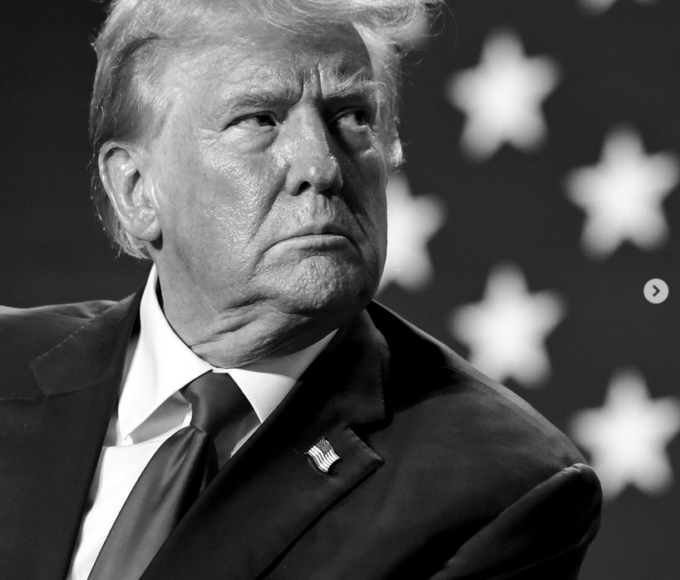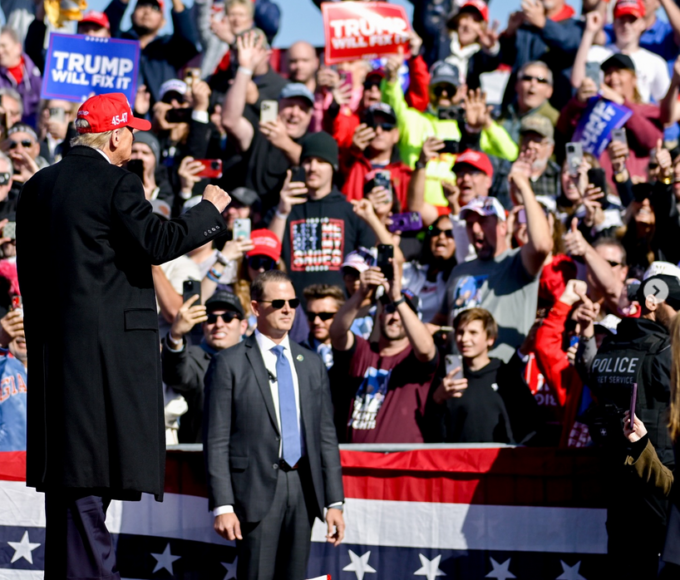By TN Ashok
#SriLanka, India’s #neighbour, has gone left with Marxist leader #AnuraDissanayake becoming the new president in the just concluded elections – Can he resurrect the economy?
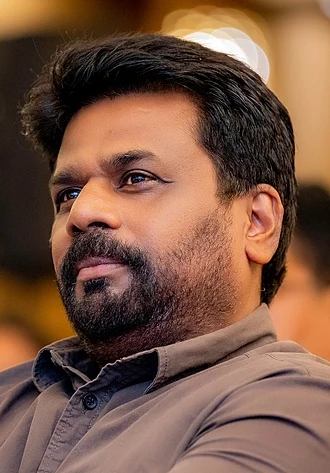 Suddenly the world appears to be swerving left from right as witnessed by elections in at least six different countries. First the labour party stormed to power in UK under PM #KeithStarmer ousting the right-wing conservative party led by #RishiSunak, which had ruled for 14 years. #Nepal went left when the Prachanda government ousted by KP Sharma Oli, a Marxist. Maldives went left under President #Muizzu, who is pro-#China, but tries to maintain a balance as the country owes $300 mn to #India.
Suddenly the world appears to be swerving left from right as witnessed by elections in at least six different countries. First the labour party stormed to power in UK under PM #KeithStarmer ousting the right-wing conservative party led by #RishiSunak, which had ruled for 14 years. #Nepal went left when the Prachanda government ousted by KP Sharma Oli, a Marxist. Maldives went left under President #Muizzu, who is pro-#China, but tries to maintain a balance as the country owes $300 mn to #India.
In India the ultra-right wing party coalition #BJP led #NDA lost 67 seats to the Centrist – Leftist ideology of the INDIA alliance led by the Congress. France went left from centrist with a new found coalition of National Popular Front (NPF) party (an amorphous group of some five to six left parties) to gain majority, but President Macron who reluctantly relieved his PM Gabriel Attal, ultra-right winger, and replaced him with #MichelBarnier, moderate right winger, the country’s rep to the EU. 
We have to examine the #SriLanka elections in the context of the following detailed background to the elections in: #UK, #France, #Nepal, #India, #Maldives. #USA which goes to polls to elect the new President on November 05, this year, seems tilted towards the leftist democratic party now led by VP #KamalaHarris aspiring to become the president against the ultra-right-wing #Republicans led by billionaire businessman #DonaldTrump, who was president from 2016 to 2020.
#France: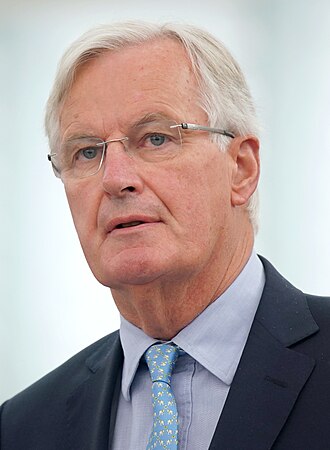
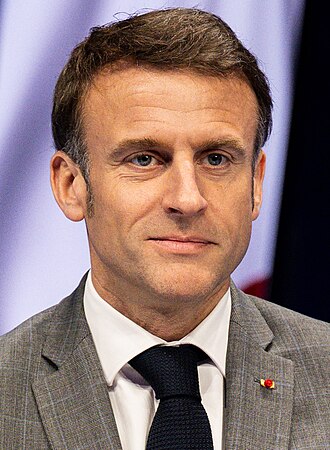
In the second round, based on the Interior Ministry’s candidate labelling, NFP candidates won 180 seats, with the Ensemble coalition winning 159, RN-supported candidates being elected to 142, and LR candidate taking 39 seats. Since no party reached the requisite 289 seats needed for a majority, the second round resulted in a hung parliament. Unofficial media classifications of candidates’ affiliations may differ slightly from those used by the Ministry of Interior: according to #LeMonde’s analysis, 182 NFP-affiliated candidates were elected, compared with 168 for Ensemble, 143 for the RN, and 45 for LR. The turnout for the second round, 66.63%, likewise set the record for being the highest since 1997.
Macron broke the deadlock of leftists seizing decision making by appointing a right-wing party member as the Prime Minister Mr. Michel Barnier, on September 05. NFP leaders called for the appointment of a Prime Minister from the left, but Ensemble and LR figures advocated for an alliance and threatened that any NFP-led government including ministers from La France Insoumise (LFI) would face an immediate vote of no confidence.
UK Elections: The Labour party led by Keith Starner stormed to power in the UK general elections ordered ahead of time by the then Prime Minister Rishi Sunak of the Conservative Party, which had ruled for almost 14 years. The 2024 United Kingdom general election was held on Thursday, 4 July 2024 to elect 650 members of Parliament to the House of Commons, the lower house of the Parliament of the United Kingdom. The opposition Labour Party, led by Keir Starmer, defeated the governing Conservative Party, led by Rishi Sunak, in a landslide victory. 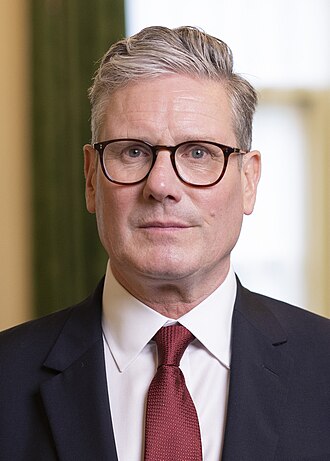
The election was the first general election victory for Labour since 2005 and ended the Conservatives’ fourteen-year tenure as the primary governing party. Labour achieved a 174-seat simple majority and a total of 411 seats. The party’s vote share was 33.7 per cent, making this the least proportional general election in British history according to the Gallagher index.
Labour won 211 more seats than the previous general election in 2019, but half a million fewer total votes. The party became the largest in #England for the first time since 2005, in #Scotland for the first time since 2010, and retained its status as the largest party in Wales.
The Conservative Party was reduced to 121 seats on a vote share of 23.7 per cent, the worst result in its history. It lost 251 seats in total, including those of twelve Cabinet ministers and Southwest #Norfolk, the seat of the former prime minister Liz Truss. It also lost all its seats in Wales. The combined Labour and Conservative vote share was 57.4 per cent, the lowest since the 1918 general election. 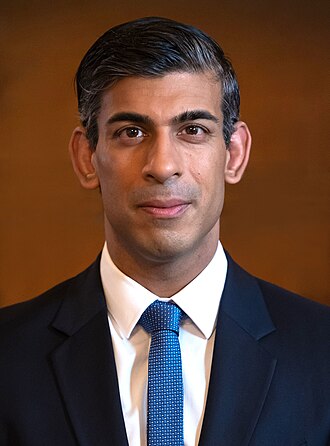
Change was the slogan of #LabourParty as the country saw itself dip into economic chaos, high inflation and joblessness which prompted a mediocre labour leader Starmer catapult to fame and expectations of the people of #England, #Ireland, #Scotland and #Wales run high on his slender shoulders.
#Nepal: 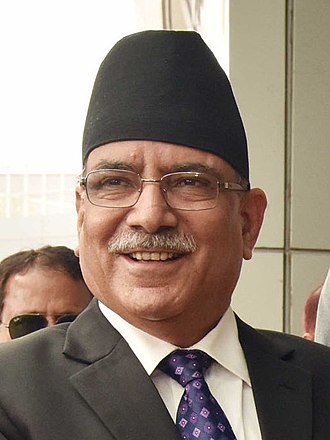
Friday’s trust vote was the fifth time Prachanda tested himself on the floor after he was appointed prime minister some 18 months ago. During the first confidence vote on January 10, 2023, he received strong support with 268 votes.
In the second-floor test on March 20, 2023, after the UML-Maoist alliance broke, he secured 172 votes in Parliament. In the third vote of confidence held on March 13, 2024, after forming a new alliance with the UML, Prachanda received 157 votes. On May 21, 2024, following the JSP split, he secured 157 votes with no opposition votes registered.
With Prachanda failing the trust vote on his fifth attempt, CPN-UML Chairman #KPSharmaOli became the Prime Minister for a fourth time with the support of the #NepaliCongress. Oli is known for his pro-Beijing stance, and it would be interesting to see how he maintains ties of equi-proximity with both India and China. 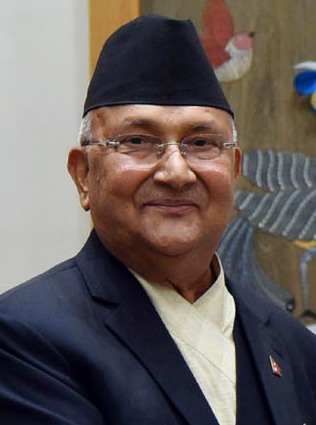
Ties between #India and #Nepal came under severe strain in 2020 after #Kathmandu published a new political map that showed the three Indian territories – #Limpiyadhura, #Kalapani and #Lipulekh – as part of Nepal. Oli who was prime minister then had attempted to use the issue to fend off increasing domestic pressure and challenge his leadership. The NC has 89 seats in the HoR, while CPN-UML has 78. Their combined strength of 167 is much more than the 138 required for a majority in the lower house.
Nepal has had 13 governments in the last 16 years, indicating the fragile nature of the Himalayan nation’s political system. Prachanda, one of the longest surviving PMs of Nepal, said the communist government would take the country backwards and warned against the designs of China.
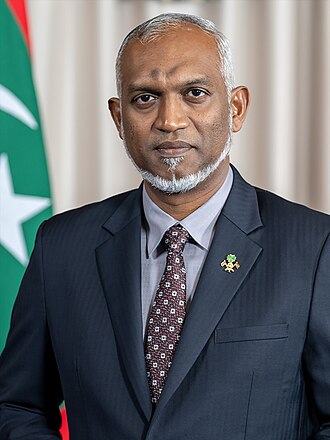
The result was a landslide victory for Muizzu’s #People’sNationalCongress (PNC) and a heavy defeat for the #MaldivianDemocraticParty (MDP), which won a similar landslide in the 2019 elections. The results were seen as an endorsement of Muizzu’s plan to press ahead with closer economic cooperation with China and a rebuke of the pro-India MDP, which had sought to disrupt efforts to realign Maldivian diplomacy.
India : The results of India’s general elections to constitute 18th Lok Sabha, held in April–June 2024 and announced on 4th and 5th June 2024 saw the ruling right wing coalition of BJP led NDA lose a whopping 67 seats with #240 seats, failing to get the magic #272 to form the government and had to take the support of an amorphous group of parties – TDP in #AndhraPradesh, JD-U in Bihar, JD-S in Karnataka and LJP in Bihar. 
The main contenders were two alliance groups of the Incumbent National Democratic Alliance (N.D.A) led by #BhartiyaJanataParty; and the Opposition Indian National Developmental Inclusive Alliance (I.N.D.I.A.) led by #IndianNationalCongress. In the legislative house of 543 seats, the incumbent NDA alliance secured majority with 293 seats, which included BJP’s 240 seats, while the opposition INDIA coalition got 234 seats, including Congress party’s 99 seats. On June 9, 2024
Overview:
The BJP-led NDA surpassed the majority threshold of 272 and won 293 seats. However, unlike the previous election, the BJP did not win a majority in both houses of parliament having only won 240 seats (losing 63 seats from the 303 seats they previously held since 2019 as well as losing their 10-yearlong benefit of being the sole-controller of both houses of parliament since 2014) in the Lok Sabha.
The INC-led INDIA alliance gained 235 seats out of which 99 were won by the Congress Party. 37 seats were won by the SP while 29 seats from West Bengal were won by the Mamata Banerjee-led Trinamool Congress. The final wins by the alliance were stronger than previous predictions from exit polls.
The BJP lost 63 seats while its two main partners, the TDP gained 13 seats and the JD (U) lost 4. Within the opposition alliance, the Congress Party gained 47 seats, the SP gained 32 seats, and the Trinamool Congress gained seven seats. Uttar Pradesh, West Bengal and Maharashtra had A A key reason for BJP losing its majority in 2024 was the narrative by the Opposition parties that BJP would end the reservations for lower caste Hindus, based on some loose remarks by BJP leaders about changing the Constitution. Also inequities were perceived in the country with high grocery, fuel prices, and unemployment caused by inequities due to right wing policies that favored the crony capitalism and a few selected industrial groups over others.
Sri Lanka : The 2024 Sri Lankan presidential election, the ninth presidential election held on 21 September 2024 saw Marxist leader Anura Dissanayake winning 58% of the popuylar votes in the 2nd round as the first round of voting was indecisive. Incumbent President Ranil Wickremesinghe ran for re-election as an independent candidate, making him the first sitting president to run for re-election since Mahinda Rajapaksa in 2015. Other prominent candidates included Leader of the Opposition Sajith Premadasa, Anura Kumara Dissanayake of the NPP, and Namal Rajapaksa, son of former President Mahinda Rajapaksa.
The election was a three-way contest between Wickremesinghe, Premadasa and Dissanayake. The first vote count concluded with no candidate winning a majority. Dissanayake won a plurality of the vote with 42.31%, followed by Premadasa with 32.76%. Incumbent president Wickremesinghe finished third, winning only 17.27% of the vote. Since no candidate won a majority, a second round of vote counting was held for the first time in Sri Lanka’s history under its limited ranked voting system.
The following day, Dissanayake was declared the winner, winning 55.89% of the vote in the second round. He was inaugurated on 23 September.
The election signified a major political realignment in Sri Lanka. Dissanayake’s victory was the first-time a third-party candidate was elected president. This was also the first election where neither of the top two candidates were endorsed by the United National Party or the Sri Lanka Freedom Party. The last direct presidential elections held in Sri Lanka were in 2019, where SLPP candidate Gotabaya Rajapaksa won the election in a landslide victory, defeating his main opponent Sajith Premadasa.
Rajapaksa resigned on 14 July 2022 during the 2022 Sri Lankan protests. This triggered an indirect presidential election via Parliament a week later, to elect a successor according to the Article 40 of the Constitution. Ranil Wickremesinghe, who had been appointed as Prime Minister by Rajapaksa just two months earlier, received the most votes and was sworn in as the 9th President of Sri Lanka on 21 July 2022.
Why the SriLankan’s voted a Marxist as the new President: Sri Lankan elected Anura Kumara Dissanayake as the country’s new president, giving the Marxist-leaning politician a key role in deciding the future of reforms in the debt-ridden nation that is slowly emerging from a crushing financial crisis.
Below are the key challenges for Dissanayake, who was sworn-in as the Indian Ocean country’s head of state on Monday:
ECONOMY AND GROWTH
A dire shortfall in foreign exchange reserves in 2022 pushed Sri Lanka’s economy into its worst crisis in decades. While the economy has since taken tentative steps towards recovery, a lot remains to be done. Inflation has moderated to 0.5% from a crisis-peak of 70%, while the economy is expected to grow in 2024 after shrinking 2.3% last year and 7.3% at the height of the crisis.
Dissanayake will have to ensure the economy returns to sustainable and inclusive growth, reassure local and international markets, attract investors and help a quarter of the 22 million population climb out of poverty.
IMF PROGRAMME, DEBT RECONSTRUCTION
A four-year, $2.9 billion IMF bailout, secured in March 2023, has helped Sri Lanka boost reserves, stem a fall in its currency and tame runaway inflation. It also set the groundwork for debt restructuring talks.
In June, Colombo inked deals with China and other creditor nations to restructure about $10 billion in bilateral debt and last week reached a draft deal to restructure $12.5 billion of international bonds. The debt rework is crucial to reach a 2.3% of GDP primary balance target by 2025, the key fiscal target set by the IMF.
But Dissanayake could seek changes to the bondholder deal. He has also promised to seek amendments to taxation goals under the IMF programme but has committed to repaying debt.
TAXATION
Dissanayake promised to bring change for those reeling under austerity measures linked to the IMF bailout but his party has just three of 225 seats in parliament and needs to find a way to get its backing. Passing an interim budget under IMF bailout terms could also prove a difficult task.
He has promised to dissolve parliament within 45 days of taking office and call for snap general elections to seek a fresh mandate for his policies.
Dissanayake said he will have discussions with the IMF to adjust their programme and reduce taxes and free up public revenue for tax relief and investment. He has pledged to remove VAT on some health, education and food items. But the measures could affect fiscal deficit targets set under the IMF deal.
JOBS AND WELFARE
Dissanayake has promised to revamp state companies to make them more profitable, create 20,000 new teaching jobs, and create more opportunities in key sectors such as tourism. He has also pledged to expand existing welfare schemes.
But missteps in public finances, fixing loss-making state companies and strained foreign exchange reserves could limit his ability to quickly move forward on these pledges.
GEOPOLITICS
Colombo has sought to balance ties with neighbour India and with China, leading creditors and investors who are also jostling for geopolitical influence on the island.
Japan, India and China are key parties to Sri Lanka’s $12.5 billion debt rework. Dissanayake has expressed his intention to continue working with them and foster economic ties to boost growth.
In summary, right wing politics in UK, France, Nepal, India, Sri Lanka and Maldives and policies favouring a few groups as against the backbone of the economy the middle class has obviously turned the ire of the people at the Ballot Box giving the leftist –centrist- communists a chance to rule and rectify the fault lines in the economies. Can they do it ?
Source : Global Media Reports including Reuters, AP, regional media in the six countries mentioned in the article including Le Monde of France.
Contributor, IANS - Washington DC/New York
Executive Editor, Corporate Tycoons - Pune, India
Executive Editor, The Flag Post - Bengaluru, India
Contributor, The Statesman, Hindu Business Line, Sarkaritel.com, Diplomacyindia.com
Former Economics Editor, PTI - New Delhi, India
Former Communications Advisor,
Alstom Group of Companies, SA - France/Belgium











































